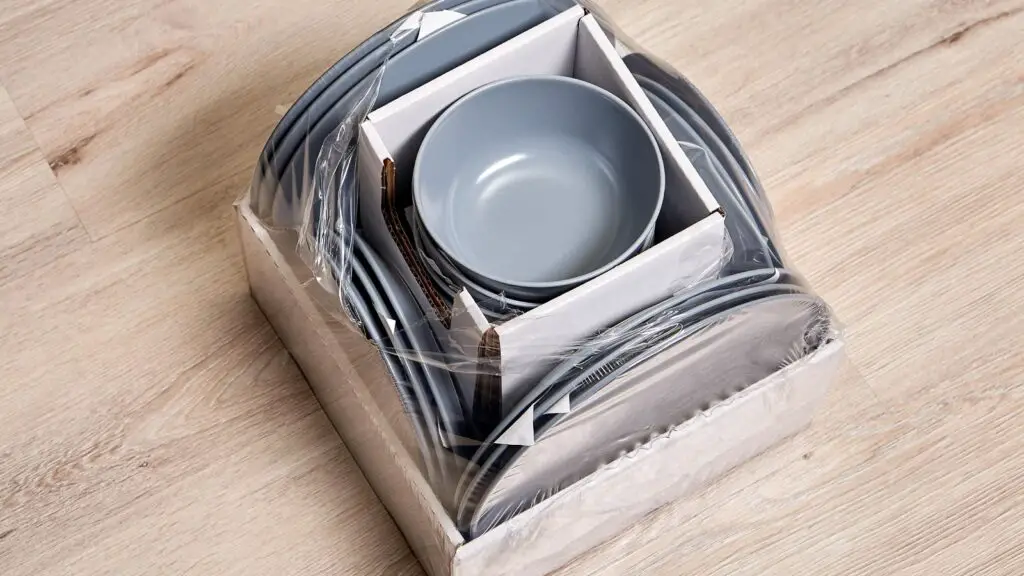Exploring the world of shredded paper reveals its multifaceted role in sustainability, privacy, and creativity. This article delves into whether shredding paper is eco-friendly, its recyclability, biodegradability, and unique applications beyond disposal.
Is Shredding Paper Eco Friendly?
Yes, shredding paper is eco-friendly. Shredding paper helps in the recycling process by reducing the size of paper, making it easier to process. When paper is shredded, it breaks down more quickly in the recycling system, saving energy and reducing greenhouse gas emissions. Shredding also ensures that confidential documents are destroyed securely, preventing them from ending up in landfills. By shredding paper, we contribute to the reduction of waste and support the recycling industry, aiding in the conservation of natural resources and energy.
Can I Recycle Paper Shreddings?
Yes, you can recycle paper shreddings. Recycling centers often accept shredded paper because it can be turned into new paper products. However, the process is slightly different from recycling whole sheets of paper. Shredded paper fibers are shorter, which can affect the quality of the recycled paper. To recycle shredded paper effectively, it’s best to keep it separate from other recyclables and place it in a clear bag or paper bag to prevent it from scattering. This helps recycling facilities to easily sort and process the shredded paper, ensuring it is reused and does not end up in landfills.
Is Shredded Paper Biodegradable?
Yes, shredded paper is biodegradable. Paper is made from natural materials, primarily wood pulp, which breaks down over time when exposed to environmental elements like moisture and bacteria. Shredded paper decomposes faster than whole sheets due to its increased surface area, which allows microbes and moisture to break it down more efficiently. This makes shredded paper a good option for composting, as it adds carbon-rich material to the compost pile, helping to balance the nitrogen from food scraps and yard waste. However, it’s important to note that the biodegradability of shredded paper can vary depending on the type of paper and any inks or dyes used on it.
Impact of Shredded Paper on Recycling Processes
Before diving deeper, it’s essential to understand the recycling journey of shredded paper. Shredded paper, while recyclable, presents unique challenges in recycling facilities.
The Recycling Journey of Shredded Paper
Shredded paper goes through a distinct path in recycling plants. Its small size can cause it to get lost amid other materials, potentially leading to a less efficient recycling process. Workers at recycling facilities must take extra steps to ensure that these small pieces are captured and processed correctly.
Additionally, the quality of recycled products from shredded paper can vary. Because the fibers are shorter, the resulting recycled paper might not be as strong or as high-quality as products made from unshredded paper.
Sorting and Processing Challenges
The sorting process for shredded paper is more complex than for whole sheets. Advanced machinery is required to separate these tiny pieces from other recyclables, which can increase operational costs for recycling centers.
In processing, the shorter fibers from shredded paper can limit the types of new products that can be made. While still valuable, these fibers often end up in lower-grade paper products, like egg cartons or tissue paper, rather than high-quality printing paper.
Composting with Shredded Paper
Shredded paper isn’t just for recycling; it’s also a valuable addition to compost heaps. Incorporating shredded paper into compost contributes to waste reduction and soil health.
Benefits in Composting
When added to compost, shredded paper helps to create a balanced mix of materials, aiding in the breakdown process. It absorbs excess moisture and provides carbon, a necessary element for successful composting.
Moreover, using shredded paper in compost helps to reduce landfill waste. Instead of throwing away or recycling, you can give your shredded paper a new life by aiding in the creation of nutrient-rich soil.
Tips for Effective Composting
To compost shredded paper effectively, mix it well with other compost materials. This ensures a good balance of carbon and nitrogen. Avoid using glossy or heavily inked paper, as it might contain substances that are not ideal for compost.
Regularly turning your compost pile helps to aerate it, speeding up the decomposition process. With the right conditions, shredded paper decomposes quickly, enriching the compost with valuable nutrients for your garden.
Shredded Paper and Biodegradability
Shredded paper’s biodegradability is a key factor in its environmental friendliness. Understanding how it breaks down helps in making informed decisions about its disposal.
Decomposition in Natural Environments
Shredded paper biodegrades faster than intact sheets due to its increased surface area. This accelerated breakdown is beneficial in natural settings, as it returns the paper’s organic components back to the earth.
However, the biodegradation rate can vary based on environmental conditions and the paper type. Inks, dyes, and treatments can affect how quickly paper decomposes.
Considerations for Disposal
When disposing of shredded paper, choosing an environmentally friendly method is crucial. Composting is an excellent option, as it leverages the paper’s biodegradability to enrich soil.
If composting isn’t feasible, ensure that the shredded paper is disposed of in a way that allows it to break down effectively, avoiding methods that could lead to environmental harm, such as littering or improper landfilling.
Security Concerns with Shredded Paper
Shredding paper is a common practice for protecting sensitive information. It’s vital to consider the balance between confidentiality and environmental impact.
Secure Shredding and Environmental Impact
While shredding paper enhances security, it’s important to recognize the environmental implications. Shredding can make paper less recyclable, but not shredding sensitive documents isn’t a viable alternative. Secure shredding services often have protocols to handle shredded paper responsibly, ensuring both security and environmental care.
Choosing a Shredding Service
When selecting a shredding service, look for one that commits to environmental responsibility. These services should have clear processes for recycling shredded paper, minimizing waste and supporting sustainability.
Innovations in Paper Shredding and Recycling
Advancements in technology are continually improving how shredded paper is handled, offering new opportunities for recycling and reducing waste.
Technological Advances in Shredding
New shredding technologies are making it easier to recycle shredded paper. These innovations help in separating and processing shredded fibers more efficiently, enhancing the recyclability of shredded paper.
Future Directions in Paper Recycling
Research into paper recycling is exploring ways to improve the usability of shorter fibers from shredded paper. These advancements promise to increase the value and practicality of recycled shredded paper, contributing to a more sustainable future.
FAQs
Can shredded paper be used as mulch?
Yes, shredded paper can be used as mulch. It helps retain soil moisture, suppress weeds, and provide a barrier against pests. However, it should be applied in a thin layer to prevent matting, which can block water and air from reaching the soil.
Does the ink on shredded paper affect its recyclability?
The ink on shredded paper can affect its recyclability to some extent. Most modern inks are soy-based and not as harmful to the recycling process, but heavy inks and certain dyes might reduce the quality of the recycled product.
Is it better to recycle or compost shredded paper?
Whether to recycle or compost shredded paper depends on your local recycling guidelines and personal preference. Recycling turns the paper into new products, while composting enriches the soil. If your local facility accepts shredded paper, recycling is a good option; otherwise, composting is beneficial.
How long does it take for shredded paper to decompose in a landfill?
Shredded paper takes about 2 to 6 weeks to decompose in a landfill under optimal conditions. However, landfills often lack the necessary conditions for rapid decomposition, so it can take significantly longer.
Can shredded paper be harmful to animals if used in compost?
Shredded paper is generally safe for compost used in gardens, but it should be free from glossy finishes or heavy inks. If consumed in large quantities, the chemicals in some inks and papers could be harmful to animals.
How can businesses manage large volumes of shredded paper sustainably?
Businesses can manage large volumes of shredded paper by setting up recycling programs with local facilities that accept shredded paper or by using it in industrial composting facilities if available.
Are there any alternatives to shredding paper for secure document disposal?
Alternatives to shredding for secure document disposal include incineration, pulping, and using professional document destruction services that ensure secure and environmentally responsible disposal.
Can shredded paper be used in worm bins for vermicomposting?
Yes, shredded paper can be used in worm bins for vermicomposting. It serves as both bedding and a carbon-rich food source for the worms, but it should be free of glossy or heavily inked paper.
Conclusion: Key Takeaways
- Shredding paper is eco-friendly as it aids in recycling, though it presents unique challenges in recycling processes.
- Shredded paper can be recycled, but it requires proper sorting and processing to ensure it’s reused effectively.
- It is biodegradable and serves as a beneficial addition to compost, helping to reduce landfill waste.
- Secure shredding balances information protection with environmental responsibility, with certain services emphasizing eco-friendly disposal.
- Technological advancements in shredding and recycling are enhancing the efficiency and environmental benefits of processing shredded paper.





